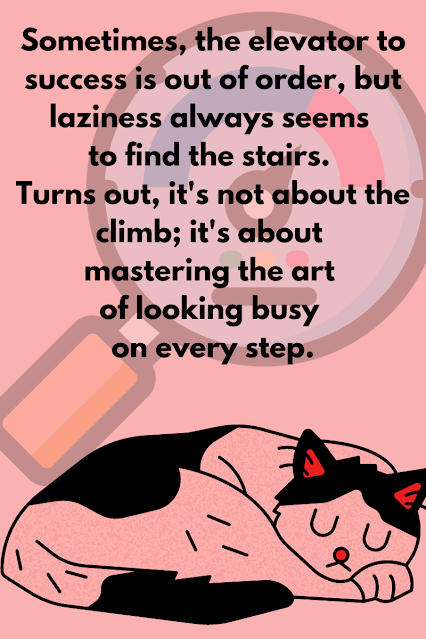Introduction When stress builds up, most people try to think their way out of it. They analyze, rationalize, and replay situations in their head, hoping clarity will bring relief. Unfortunately, the mind often amplifies emotional chaos instead of calming it. This is why logic alone rarely works during moments of anxiety, overwhelm, or mental fatigue. The body, however, responds faster than thought. Neuroscience shows that physical sensations send direct signals to the brain, influencing emotional states almost immediately. When you change your body’s signals, your nervous system follows. This is why small physical actions—done intentionally—can create instant shifts in mood, focus, and confidence. These physical micro-habits do not require discipline, motivation, or preparation. They are simple, subtle actions that work even when your mind feels tired or overloaded. By engaging the body first, you allow the mind to settle naturally. Below are seven science-backed micro-habit...
Introduction
Navigating the competitive terrain of the professional world can be a perplexing journey, especially when one observes individuals who appear to be taking a leisurely approach ascending the corporate ladder while their hardworking counterparts face struggles in their quest for advancement. The phenomenon of seemingly lazy people securing promotions can be both confounding and frustrating, challenging our preconceived notions about the relationship between effort and success. Delving into the intricacies of this paradox reveals intriguing insights into the dynamics that influence promotions in the corporate realm.1. Mastering the Art of Delegation:
Lazy individuals often possess a unique skill set—the ability to delegate effectively. While they may not be putting in the long hours themselves, they excel at distributing tasks among their team members. This can create an illusion of productivity as the lazy person oversees and takes credit for the work being done by others. The art of delegation can be a powerful tool in climbing the corporate ladder, even if it means avoiding the hands-on work themselves. This skill set involves a keen understanding of team dynamics, individual strengths, and task requirements. Lazy individuals excel at matching the right person to the right job, maximizing efficiency and productivity within the team.
2. Strategic Networking and Office Politics:
Success in the professional world is not solely determined by individual merit. Lazy individuals may be experts at navigating office politics and building strategic networks. They focus on relationships with decision-makers, ensuring they are well-liked and connected within the organization. Sometimes, promotions are not solely based on meritocracy but are influenced by personal relationships and the ability to maneuver through the complex web of office dynamics.
3. Avoiding Burnout and Maintaining Long-Term Consistency:
While hardworking individuals may burn the midnight oil to meet deadlines and exceed expectations, lazy people often prioritize sustainable practices. They avoid burnout by maintaining a consistent, sustainable pace over the long term. This approach can lead to a more stable and enduring career trajectory, making them more appealing candidates for promotions in the eyes of management who value longevity and reliability.
4. Strategic Prioritization and Focus:
Lazy individuals are adept at identifying high-impact tasks and prioritizing them over less critical activities. This strategic focus allows them to achieve significant results with minimal effort, creating the appearance of efficiency. In contrast, hardworking individuals may spread themselves too thin, attempting to excel in every aspect of their work, potentially diluting the impact of their efforts.
5. Confidence and Self-Promotion:
Lazy individuals may possess a unique confidence that enables them to self-promote effectively. They are unapologetic about their achievements, even if those achievements are the result of clever delegation or strategic networking. In a world where visibility matters, the ability to confidently communicate one's value can play a crucial role in securing promotions.
Understanding these paradoxical dynamics can help hardworking individuals navigate their careers more effectively. It's essential to strike a balance between diligence and strategic thinking, recognizing the importance of building relationships, mastering the art of delegation, and promoting oneself confidently. While it may be tempting to focus solely on individual contributions, the reality is that promotions often hinge on a combination of skills, relationships, and a nuanced understanding of office dynamics.
The journey of understanding why seemingly lazy individuals thrive in professional environments reveals a tapestry woven with strategic elements that transcend the visible markers of diligence. Recognizing and embracing these elements can be a transformative endeavor for those committed to advancing their careers.
Lazy individuals are adept at identifying high-impact tasks and prioritizing them over less critical activities. This strategic focus allows them to achieve significant results with minimal effort, creating the appearance of efficiency. In contrast, hardworking individuals may spread themselves too thin, attempting to excel in every aspect of their work, potentially diluting the impact of their efforts.
5. Confidence and Self-Promotion:
Lazy individuals may possess a unique confidence that enables them to self-promote effectively. They are unapologetic about their achievements, even if those achievements are the result of clever delegation or strategic networking. In a world where visibility matters, the ability to confidently communicate one's value can play a crucial role in securing promotions.
Understanding these paradoxical dynamics can help hardworking individuals navigate their careers more effectively. It's essential to strike a balance between diligence and strategic thinking, recognizing the importance of building relationships, mastering the art of delegation, and promoting oneself confidently. While it may be tempting to focus solely on individual contributions, the reality is that promotions often hinge on a combination of skills, relationships, and a nuanced understanding of office dynamics.
Conclusion
In wrapping up the exploration of why lazy individuals occasionally find themselves ascending the corporate ladder, it becomes evident that the dynamics at play are intricate and extend beyond the conventional understanding of hard work. The multifaceted reasons behind their promotions unveil a set of skills that, when acknowledged and integrated, can empower dedicated individuals to carve their path to success in the fiercely competitive professional realm.The journey of understanding why seemingly lazy individuals thrive in professional environments reveals a tapestry woven with strategic elements that transcend the visible markers of diligence. Recognizing and embracing these elements can be a transformative endeavor for those committed to advancing their careers.


Comments
Post a Comment
Please do not add any spam link in the comment box